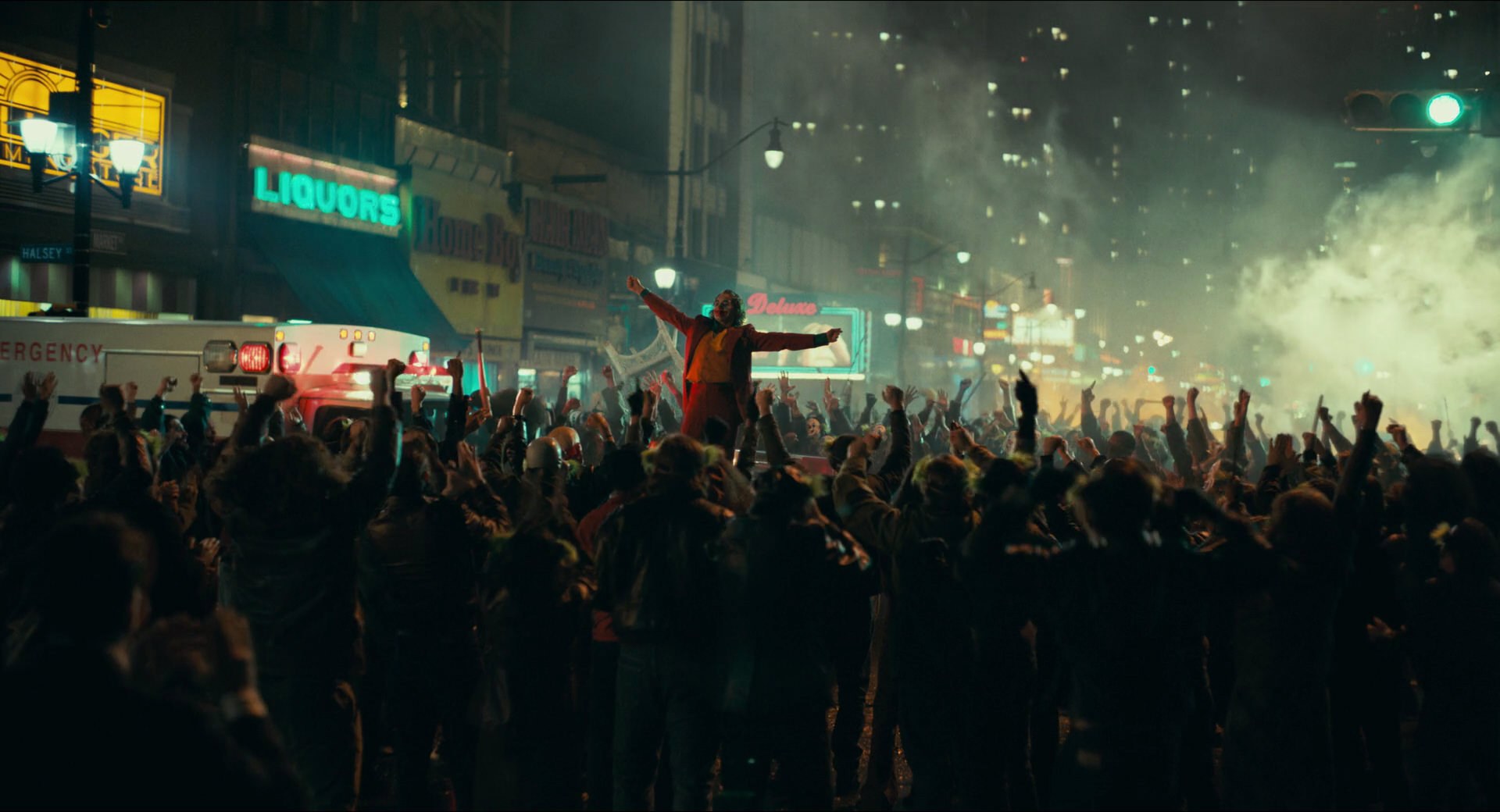Image Description: The Joker stands tall in a large crowd of angry rioters. They are cheering for him.
By Izabela Barakovska
I’m not sure the classic Australian expression, ‘shit has hit the fan’, has ever been more relevant than what Australia has seen over the last 5 months. Just when we thought we were done with it, we weren’t.
COVID-19 has seen the rise of many things; toilet-paper paranoia, the popularity of dating apps and streaming services, stress and anxiety levels, and the importance of global governance. Much like any crisis that sees shifts and changes in power and order, we also see a rise in conspiracy theories, WhatsApp chain mail threads, misc. protests and perhaps most relevant; a potential for turbulence to quickly turn to revolution.
Our dear and lovely pandemic has me making my way through a long overdue list of ‘films-to-watch’. High on the list was Todd Phillips’ 2019 film, Joker. Now before you mistake this piece as a film review, let me interject by saying thoughts on that psychological thriller are being kept for another day. What I did find particularly interesting about Joker, was the premise of revolutions within societies, the moments that lead up to them, and the catalysts that tip them over the edge.
Revolutions, though all unique in their cause and effect, can be broken down into simpler components. Revolutions happen when power structures in society are disrupted—we have seen this throughout history, in the form of assassinations, destruction of monuments, protests, the rise of extremist political parties, unions, or ethnic tensions. These events, which disrupt the normality of power distribution, in turn become movements designed to make noise and facilitate a voice.
Perhaps though, there is a thread of similarity that ties together this pandemic and revolutions. It’s not like planet Earth hasn’t been ravaged by disease before. The human populous has survived smallpox, measles, the bubonic plague, tuberculosis, influenza, chicken pox, scarlet fever, cholera, diphtheria, typhoid fever, typhus, pertussis, gonorrhoea, malaria, rickets, pneumonia, HIV, Ebola, and who knows what else.
But my sentiments lie less with the virus itself, and more with what I foresee to be the aftermath. Whether we like it or not, globalisation is undoubtedly conducive to faster and greater spread of disease—particularly where high rates of international travel and trade are concerned.
This is no mere ‘rock in the pond’ kind of disruption; this is a ‘the pond has been chewed up, spat out, and you’re left wondering if it’s ever going to be the same pond’ kind of commotion. COVID-19 has made me feel like an anachronism in my own timeline, reminding me of a line early in Michael Punke’s 2002 novel The Revenant:
“The wounded man felt an odd detachment from the scene in which he played a central role.”
I allude to the concept of revolutions with about the same level of certainty as governments, the WHO and the IMF alike. Even amongst chaos, there are individuals, organisations and states undeniably benefiting from the disruption of systems and the status quo. When you look at the history of any revolution in past, one can identify, systematically, the events that predate and precede it.
We can reflect on the 9/11 terrorist attacks with certainty, that the world was never to be the same. This event successfully disturbed the world and shook the existing power hierarchies and those who operated and benefited from them. The long-lasting anxiety could be seen in anti-terror legislation and heightened security airports around the world.
So, what makes COVID-19 different? In the vast nature of global impact, perhaps it isn’t. But how do you fight something that is indifferent to race, religion, class, gender or circumstance? We are at war with something intangible. In the wake of modern medicine, it isn’t necessarily lethal; but unlike a terrorist attack, it is not localised, and many more are vulnerable to its whims.
Whilst I’m no expert on the cause, or the effect of COVID-19, I can’t help but feel bothered by a lingering, back-of-mind concern that we are soon to look at this event as one in a series that lead to a revolution. Of what kind, and of what intent I cannot be sure. Unlike a war, this is not necessarily the actions of people.
Our current global climate is already seeing the regression of systems 200 years in the making; neoliberal dependence being one of them. For states, this has meant the removal of a reliance on the global economy, which now may become as important as fighting to become apart of it to begin with.
Whether this virus is circumstantial, perpetuated by the nature of globalisation, or an act of biochemical warfare—it is here, and its consequences will take decades, if not longer, to recover from. We’re seeing an impending global recession, a huge rise in global poverty, as well as issues closer to home; like education, health care, employment, and mental wellbeing.
Perhaps two decades of overthinking has just turned into cynicism. Is there merit in my late-night anxieties? Or should disruptions in the global economy, liberal democratic states being forced to exercise socialist values they’ve long opposed, increased invasions of privacy and movement restrictions, and capitalism being increasingly at odds with globalisation, all be attributed to new waves of mundane chaos we just need to adjust to and deal with?
The real question is: if this is the event that triggers irreversible change, what will be the revolution that follows, and who will end up on top?
Image courtesy of Warner Brothers Entertainment

